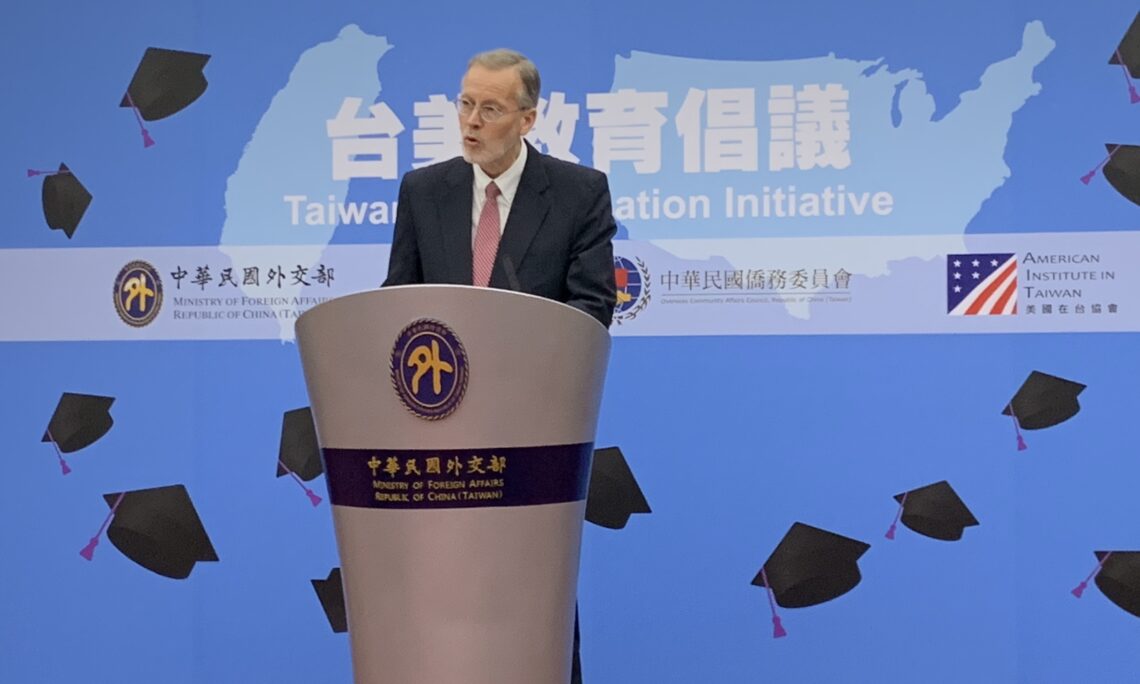OT-2052
December 3, 2020
Remarks by AIT Director W. Brent Christensen
at the Launch of the U.S.-Taiwan Education Initiative
December 3, 2020
(as prepared for delivery)
Foreign Minister Wu, Deputy Minister of Education Lio, OCAC Vice Minister Leu, other esteemed guests, good afternoon!
I am excited to be here today for the public launch of the U.S.-Taiwan Education Initiative. This new bilateral Initiative is aimed at expanding access to Chinese and English language instruction, while safeguarding academic freedom. Specifically, the Initiative will highlight and enhance Taiwan’s role in providing Chinese language instruction to Americans and to people around the world.
As you know, AIT and TECRO signed a Memorandum of Understanding, which lays the framework for our partnership in this critical area. Under this MOU, both sides have agreed to enhance and expand existing programs for two-way educational exchange, meaning once travel conditions allow, more Americans can come to teach and study in Taiwan, and more people from Taiwan can teach and study in the United States.
Yesterday, we held a very productive virtual meeting with representatives from the Taiwan NSC, MOFA, MOE, the U.S. Department of State and the U.S. Department of Education, along with local government officials. This discussion allowed the action offices from our respective governments to begin exploring the practicalities of realizing the goals identified in the MOU. We plan to continue our dialogue on these issues. It was an important first step in a process I am confident will pay dividends for both of our societies.
The U.S.-Taiwan Education Initiative is set against the backdrop of two distinct but related trends. First, universities around the world, including many in the United States, have been closing Confucius Institutes because of their role in censorship and malign influence campaigns by the People’s Republic of China (PRC). However, interest in Chinese language learning remains strong among American and international students.
Taiwan can and should play a key role in addressing that interest. We are already encouraging students of the Chinese language to choose Taiwan as their place of study. We are also examining opportunities to move more U.S. Government-sponsored Chinese language programs to Taiwan. In line with this, in 2020 we increased AIT’s annual funding of the Taiwan Fulbright program by approximately NT$6 million.
The Second trend is Taiwan’s heightened commitment to English education. Taiwan has increased its investment in English language instruction in the hopes of internationalizing both its student body and its workforce. President Tsai has announced a goal of making Taiwan completely bilingual by 2030. Doing so would mean that Taiwan’s students and young talent who wish to gain experience outside of Taiwan would have options in every region of the world. The United States is eager to help provide English language instruction to support this goal.
These two trends are both rooted in the same principle: young people should be able to pursue academic and professional opportunities in an environment free from coercion and censorship. In this way, the U.S.-Taiwan Education Initiative will provide a platform for expanded cooperation in pursuing both our shared interests and our shared values.
I hope you will continue to follow the progress of this Initiative, as we move from planning and coordination through implementation. I would encourage all of you to visit the Talent Circulation Alliance website for additional information on resources related to the Chinese and English language programs supported by the U.S. Government and Taiwan.
Before I close, I would like to thank the civil society and private sector partners here today. You have all be instrumental in forging the people-to-people ties that make this friendship so strong and so special. You also have a pivotal role in the success of the U.S.-Taiwan Education Initiative. I look forward to working with all of you to train the next generations of bilingual leaders!
Thank you for your support.
















![Video Thumbnail [Recovered]-01](../wp-content/uploads/sites/269/Video-Thumbnail-Recovered-01-1-750x450.jpg)





